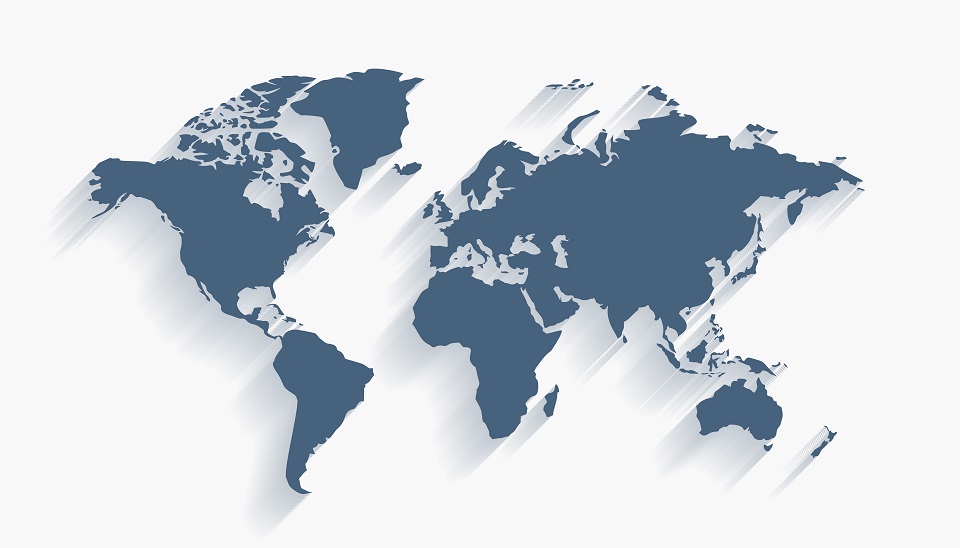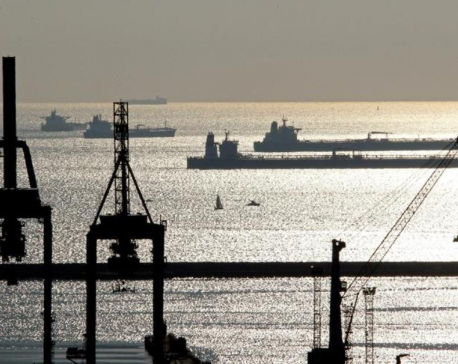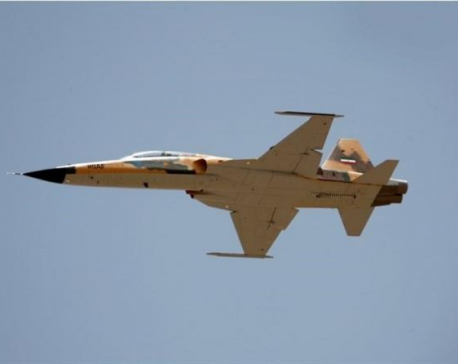
OR
BLOG
Rethinking Geopolitical Labels: An Asian Perspective on 'Global South' and 'Middle East'
Published On: January 6, 2024 12:00 PM NPT By: Prem Lamichhane

In the intricate web of global geopolitics, terms like 'Global South' and 'Middle East' have played significant roles in shaping perceptions and narratives for decades. However, when we explore these labels from the vantage point of Nepal and wider Asia, it becomes increasingly evident that these terms, crafted in the corridors of Western power politics, need a serious reevaluation and redefinition.
Let's start by unpacking the paradoxical nature of the term 'Middle East.' Nestled in the Himalayas, Nepal finds itself questioning the logic behind labeling a region 'middle' when, from an Asian perspective, it is situated significantly to the west. The nomenclature, devised during the colonial times, reflects a Eurocentric view that fails to consider the vastness and diversity of the Asian continent. How can a region be labeled 'Middle East' when it doesn't lie in the middle, especially when viewed from the eyes of Asian nations?
The Middle East, as conventionally understood, encompasses countries such as Saudi Arabia, Iran, Iraq, and others, situated far to the west of Nepal and much of Asia. The very term 'Middle East' is steeped in historical power dynamics and colonial influences that sought to establish a Western-centric worldview. In the contemporary context, where Asia is emerging as a major player on the global stage, such terminology appears outdated and irrelevant. It is crucial to question and reconsider labels that do not accurately reflect the geographical and cultural diversity of the regions they attempt to encapsulate.
The issue extends beyond the Middle East to the term 'Global South.' While ostensibly representing countries below the equator, it fails to capture the complexity and nuances of Asia's position on the global stage. Nepal, for instance, finds itself in the Southern Hemisphere, yet the 'Global South' label may not fully resonate with the experiences and challenges faced by Asian nations. The term, originating from the geopolitical landscape of the Cold War, does not align with the current realities of Asia's economic, political, and cultural diversity.
The recent surge in the use of 'Global South' in political discourse has prompted a critical examination of its appropriateness. Take, for instance, the ongoing conflict in the Middle East. The term 'Global South' is often invoked in discussions surrounding geopolitical issues, but its relevance is questionable when applied to conflicts in the Middle East. From Nepal's standpoint, the moniker does not accurately capture the intricacies and unique challenges faced by nations in this region.
Moreover, the term 'Global South' inherently carries a certain power dynamic, positioning some nations as 'developed' and others as 'developing' or even 'undeveloped.' It oversimplifies the complex socioeconomic landscapes of Asian countries, many of which are economic powerhouses with advanced technological capabilities. Nepal itself, despite its challenges, contributes significantly to the global community and cannot neatly fit into a predefined category.
In essence, the 'Global South' and 'Middle East' are Western constructs that require reevaluation in light of contemporary geopolitical shifts. These terms, born out of a time when Western powers dominated global narratives, perpetuate a Eurocentric worldview that does not do justice to the complexities and diversity of Asia. From an Asian perspective, it is essential to challenge these labels and assert our narratives that better reflect the realities, challenges, and aspirations of our diverse nations.
Nepal, along with other Asian countries, must take a stance in reshaping the discourse surrounding these terminologies. This is not just an exercise in linguistic precision but a crucial step in asserting our agency and ensuring that global conversations are inclusive and representative of the rich tapestry of cultures and histories that make up Asia.
As we navigate the complexities of a changing world, it is incumbent upon us to question and redefine the terms that shape our understanding of geopolitics. By doing so, we contribute to a more nuanced and inclusive global dialogue, one that reflects the true diversity and dynamism of Asia and challenges the remnants of colonial legacies that persist in our lexicon.
In conclusion, the time has come for Asia to reclaim the narrative, to articulate its own identity and challenges without being confined by outdated and Eurocentric labels. The 'Global South' and 'Middle East' may have served their purpose in the past, but as we look toward the future, it is imperative to craft a lexicon that reflects the true spirit of our nations and fosters a more equitable and inclusive global discourse.
You May Like This

Oil rises on fears of heightened tensions in Middle East
TOKYO, Feb 15: Oil prices rose to their highest in more than a year on Monday, after a Saudi-led coalition... Read More...

Yemen's air strikes 'kill 31 civilians' after Saudi jet crash
DUBAI, Feb 16: Yemen’s Iran-aligned Houthi movement accused the Saudi-led coalition of carrying out retaliatory air strikes on Saturday that killed... Read More...

Iran showcases new fighter jet as tensions increase with the US
LONDON, Aug 22: Iran said on Tuesday it would boost its military might and also showcased a new fighter jet... Read More...











Just In
- Challenges Confronting the New Coalition
- NRB introduces cautiously flexible measures to address ongoing slowdown in various economic sectors
- Forced Covid-19 cremations: is it too late for redemption?
- NRB to provide collateral-free loans to foreign employment seekers
- NEB to publish Grade 12 results next week
- Body handover begins; Relatives remain dissatisfied with insurance, compensation amount
- NC defers its plan to join Koshi govt
- NRB to review microfinance loan interest rate








Leave A Comment